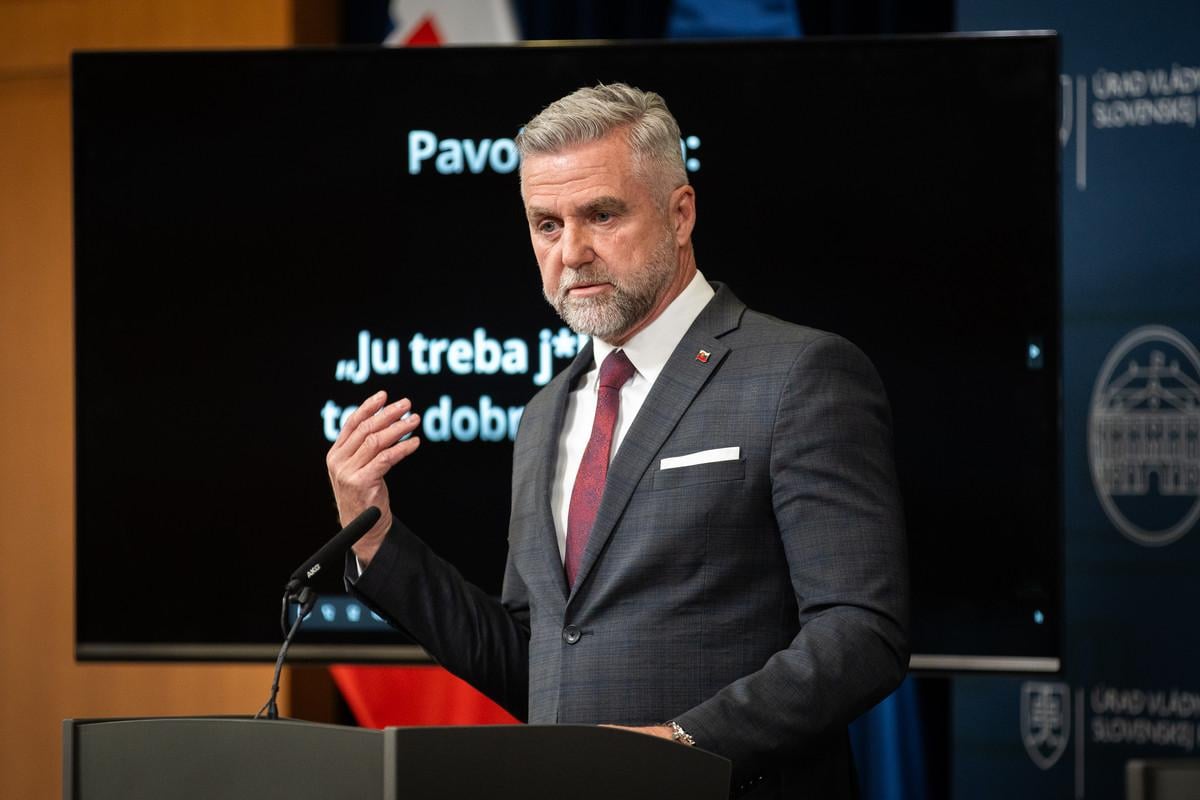Welcome to your weekly commentary and overview of news from Slovakia. Smer politicians launch a new attack against the police officers who investigated their suspected corruption cases. Parliament passes “Covid amnesties”, Pellegrini says he will veto it. Council of Europe Commissioner for Human Rights to Slovak MPs: Do not pass that law.
If you have a suggestion on how to make this overview better, let me know at michaela.terenzani@spectator.sk.
Smer politicians are attacking a police investigator. Here’s why
This is the story of Tibor Gašpar.
Tibor Gašpar is the deputy speaker of parliament, nominated by the ruling coalition’s Smer party. During the 2023 election campaign he appeared at Smer press conferences alongside party leader Robert Fico. Since Fico became prime minister in October of that year, he has often stood at the premier’s elbow during press conferences at the Government Office – even though his job is in parliament, not the cabinet.
Before Tibor Gašpar joined Smer as a politician, he spent more than a year (most of 2021) in pre-trial custody on serious criminal charges. Before that, he was the national police chief under successive Smer governments from 2012 to 2018, when his ignominious role in the investigation of the murder of journalist Ján Kuciak and his fiancée Martina Kušnírová eventually led to his forced resignation.
The charges that he faces are linked to suspicions of something akin to criminal capture of the police. The prosecutor who filed the charges has described how Gašpar, assisted by the oligarch Norbert Bödör, to whom Gašpar is related, created a criminal network within the police force to suppress investigations and serve criminal purposes. Some of this sorry tale is described in an award-winning documentary movie about the murder of Kuciak.
The police officers who investigated that case – code-named Purgatory – have been subjected to a campaign of sustained harassment since the investigation began: first via the so-called “war in the police” during the previous government, and especially since Smer returned to power in 2023. Some of them, including the head of the original investigative team, Ján Čurilla, now face criminal prosecution for abuse of power. They have been suspended for months, getting paid only part of their salaries while being prevented from taking other work and even being monitored to prevent them, on pain of loss of income, from leaving their homes during working hours. The National Crime Agency (NAKA) for which they worked has since been disbanded by the current government. The same fate has befallen the Special Prosecutor’s Office, whose prosecutors had led the highest-profile corruption cases, including Purgatory.
The government of Robert Fico has managed to partially incapacitate the criminal prosecution bodies in this way, and has also passed an amendment to the Criminal Code that makes it considerably easier for people suspected of financial crimes, including corruption, to avoid prosecution or serious punishment. But, despite all this, the government has not managed to stop the Purgatory case.
The Specialised Criminal Court, after being delayed by a series of objections from the involved parties, decided on March 25 to take up the case. It will likely take another few months before it actually begins, but it does mean that the case will be heard by the court – and that the public will learn details about it, including much of the evidence gathered by the prosecution bodies.
Čurilla and his lawyer Peter Kubina believe this is the reason why Gašpar and the people around him are nervous – not least Robert Fico himself.
Just how nervous they are was revealed on Tuesday, when a press conference entitled “How Čurilla & co. wanted to baptise their book with our blood” was abruptly announced at the Government Office. Hours after the press briefing, Fico published an influencer-like behind-the-scenes video about his day – including a meeting with Bödör at the Government Office.



 Tibor Gašpar. (source: Marko Erd, SME)
Tibor Gašpar. (source: Marko Erd, SME)